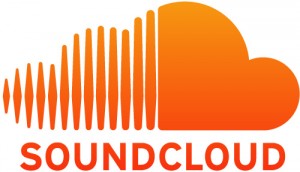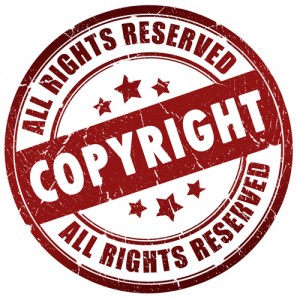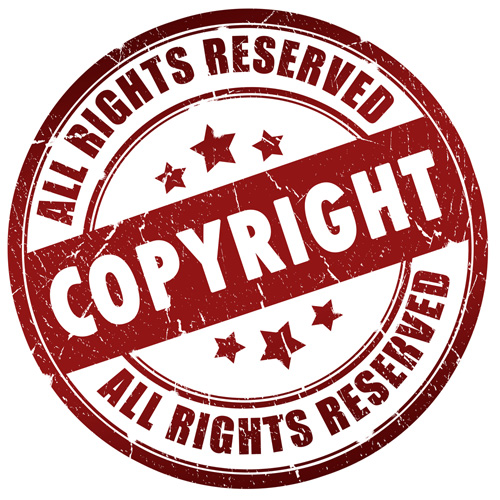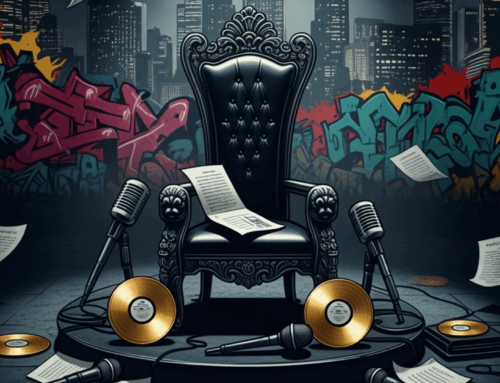 Lately, numerous producers and DJs, including myself, have been complaining about the blocking of audio files uploaded to the online audio distribution platform, SoundCloud. An essential tool for DJs and producers alike, SoundCloud has usurped Myspace as the place to host your own audio creations for the world to hear. Until recently it seemed that you could load up pretty much anything you wanted onto this amazing website. However, since the popular site has breached 20 million users, things are beginning to change. For a basic account it’s free, but for those of us looking to hold more than a 120 minutes of audio, a paid subscription is key. At a time when digital culture is surging with no end in sight, the amount of money that SoundCloud has the potential to generate will not go unnoticed by big companies like Universal Music Publishing Group (UPG), who hold the licenses to more than a million copyrights. It is for this reason that the blocking has begun.
Lately, numerous producers and DJs, including myself, have been complaining about the blocking of audio files uploaded to the online audio distribution platform, SoundCloud. An essential tool for DJs and producers alike, SoundCloud has usurped Myspace as the place to host your own audio creations for the world to hear. Until recently it seemed that you could load up pretty much anything you wanted onto this amazing website. However, since the popular site has breached 20 million users, things are beginning to change. For a basic account it’s free, but for those of us looking to hold more than a 120 minutes of audio, a paid subscription is key. At a time when digital culture is surging with no end in sight, the amount of money that SoundCloud has the potential to generate will not go unnoticed by big companies like Universal Music Publishing Group (UPG), who hold the licenses to more than a million copyrights. It is for this reason that the blocking has begun.
Copyright law in America has not caught up the rapid pace of the remix culture that we take for granted, and the big bad record companies who ran the show before the rug was pulled out from under them, by digital filesharing and accessible social media, are looking to protect their licensed treasures at any cost.
Wait, DJs record mixes comprised of sampled copyrighted material and upload them to SoundCloud for anyone to listen, but they aren’t selling the mixes. And proving that they use the mixes to raise their profile to generate gigs with earning potential is hard to prove, right? Right, but buying a copy of a record doesn’t give you the right sample or make a copy of it, even if you give it away.
Conversely, duplicating copyrighted material does not necessarily constitute a violation of copyright. There is something in copyright law called “Fair Use”. Wikipedia clearly articulates “Fair Use” as “…a doctrine that permits limited use of copyrighted material without acquiring permission from the rights holders.” If the use of copyrighted material without permission of the right holder is for things like commentary, criticism, news reporting, teaching, or (more recently) appropriation art, then the use is considered “fair use”.
So the question here is, does a DJ mix constitute “Fair Use”? Each “Fair Use” case is different, and must be evaluated separately. Copyright law weighs the question by examining the character of the use, nature of the work, amount of the original work used and the effect upon the value of or market for the original. Let us apply these concepts to the DJ mix.
The Character Of The Use
The first factor in determining fair use is concerned with the whether or not the use of the copyrighted material in the new work “stimulates creativity” and contributes to the “enrichment of the general public”, rather than be used for personal profit. In defense of “Fair Use”, as a DJ I would make the argument that a DJ mix is both educational and a form of artistic expression. According to Nicolas Bourriaud, the director of the Ecole Nationale Superieure des Beaux-Arts in Paris, a DJ’s task is “…selecting cultural objects and inserting them into new contexts”…A DJ is a “semionaut” who “…produces original pathways through signs. The DJ activates the history of music by copying and pasting together loops of sound, placing recorded products in relation with each other.” In Bourriaud’s eyes, the DJ is both an artist and a historian. While the concept is a postmodern one, certainly the endorsement of it by the director of a prestigious art school in Paris would be enough to support a DJs claim of fair use for his mix. And since SoundCloud does not act as a distributor, there is no money to be had. In an interview with PBS, Harvard Law Professor and copyright reform advocate Lawrence Lessig opinionates, “In my view, sampling is fair use. Fair use should include commercial use. So it shouldn’t matter. But if there is nothing sold, then the argument for fair use is even stronger.”
Nature Of The Work
Fair use often considers the nature work that is copyrighted in order to determine whether or not something deserves being copyrighted. You can copyright an idea, not a fact. Presuming the raw material for the DJ mix is original artistic content, It is safe to say that is deserves copyright protection. Although I do find it ironic that the mix of mine that was blocked, was due to a track by none other than Cut Copy.
Amount Of The Original Work Used
Apparently, the less copyrighted material used in the creation of a new work, the more likely it’s use will be considered fair use. In the case of audio, this is measured by the chronological length of the sound sample. This is why so many Hip Hop producers (an entire genre born of sampling) try to keep their samples short, so as to avoid paying big royalties. This make sense mathematically, but music is psychological. There are songs that last 20 minutes and are instantly forgettable, while a single bar from Harold Faltermeyer’s theme to Beverly Hills Cop, “Axle F” can transport you to another decade. This is something that a (configurable) musician like Girltalk banks on. This measure of fair use is not so good for a more traditional DJ mix which utilizes the better part of each song selected, despite any equeing, looping or beatmatching that may occur throughout. Inversely, what is not considered here it the fact that a whole song in a DJ mix typically constitutes a small portion of the greater configuration. If a DJ is “telling a story” or “giving a history lesson” with the songs assembled, each song may only account for one chapter or footnote in a much bigger idea.
 Effect Upon The Value Of Or Market For The Original
Effect Upon The Value Of Or Market For The Original
If money wasn’t involved, it is unlikely that the record industry would give a rats ass. Their concern is that not only that someone could benefit financially from a license they hold the rights to (forget the artist), but that the use of the copyrighted material will provide access to it that would deter someone from buying it from them. From their perspective, a DJ mix containing their licensed material, whether it is sold or given away to the public, will deter people from legitimately purchasing the original. While the argument seems to reason, it just doesn’t hold water. History has shown that when a DJ plays a track someone likes, that person often goes out (or these days, stay in) and purchase a copy for their own collection. It is this phenomenon which kept the mom and pop record store around the corner from the Paradise Garage, Vinyl Mania, full of customers every Saturday morning after Larry Levan’s DJ sets. So the effect in this case is the reverse.
From this cursory examination of a DJ mix with regard to fair use, the jury is out, but the good news is that if something is copied or appropriated via “fair use” then there should be no need to claim it as such. It is only when the license holder disputes the use of his/her material that the DJ, in this case, would need to prove otherwise in a court of law. Herein lies the rub.
If a big company like UPG takes you or your online audio buddy SoundCloud to court over your use of one of its’ licensed songs, whether your use is fair or not, you could be bled dry by a lawyer in the process. You will have wished you never made the DJ mix in the first place. In order to avoid the potential for a gargantuan lawsuit by a whale like UPG, who has money to burn, companies like SoundCloud, which now have money to lose, are instituting the use of digital fingerprinting technology to identify copyrighted material. The software scans a portion of the audio file and compares it to a database of copyrighted material supplied by the license holder in order to identify copies. There are a number of problems with this.
The software only needs to recognize a portion of the original to create a positive ID. The positive ID triggers a block from the audio platform, and sends you to a copyright violation disclaimer page. When it comes to a DJ mix, a song or any portion thereof could be reduced to a four bar loop, overlayed onto another track, or used in any wacky combination of ways which would theoretically meet the standard of fair use. However, with 20+ million user profiles to filter, and a mere 100 employees, this software is here to stay. To make matters worse, companies like Audible Magic brag that their CopySense digital fingerprinting technology can recognize audio clips that have been transcoded or altered from their original. This means that even if you alter the portion of the original track that you use in your mix in some way, it will still be recognized and flagged as a violation of copyright as set up by SoundCloud. This may be anomalous to pinning a crime on someone with nothing more than a 5 out of 20 point fingerprint match.
New York Tech House producer and label manager of Subtrak Records, Derek Marin, complained via Facebook to have had a number of his original tracks blocked by SoundCloud. He was forced to go through the time consuming process of filing the proper (digital) paperwork to have his songs unblocked. Given the nature of the fingerprinting software, this is of no surprise since this Techno music’s very DNA is loops and samples of pre-recorded sounds, but ridiculous nonetheless.
The battle for reform of these antiquated copyright laws will no doubt continue for some time, but it is my hope that the exponential spread of digital culture will become far too much for the old guard to handles and they will crack under the pressure. In the mean time happy mixing!




